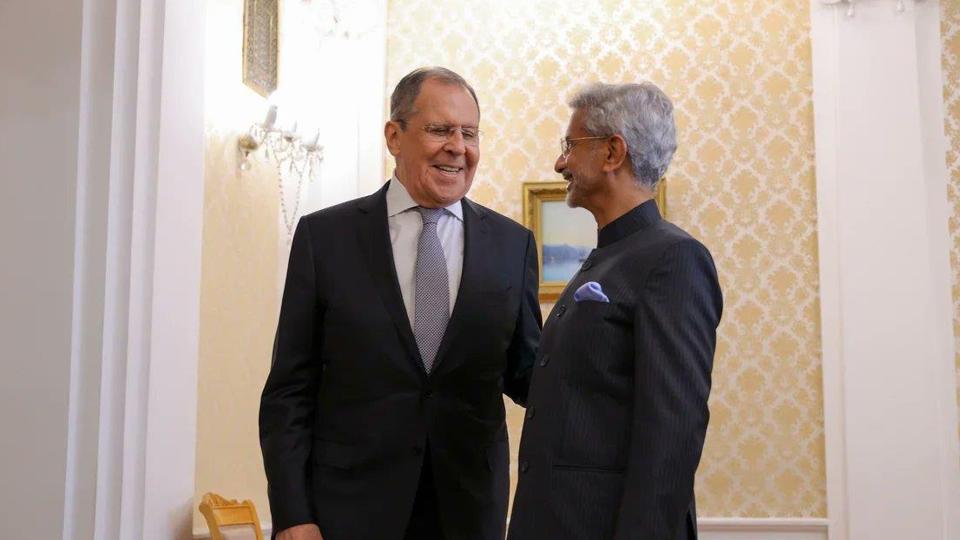
The horrific war in Ukraine, which is already in its ninth month and has shocked the entire world, is drawing more international attention as external affairs minister Subrahmanyam Jaishankar makes his bilateral visit to Russia this week.
Ukraine’s war and India’s Strategy so far
- India’s balanced approach: There are good grounds for India to be pleased that the West now understands better its position on Ukraine. The Indian response to the problem has been under constant fire from the Western media and think groups in recent months for being lacking in moral clarity and strategic coherence in the face of Russia’s unwarranted aggression.
- India refused to expressly condemn Russia’s aggression against Ukraine over the course of the past nine months and pushed on a truce rather than calling for a dialogue between the warring parties. At the same time, India refrained from supporting Russian aggression, emphasised the need to uphold the UN Charter, emphasised the inviolability of territorial sovereignty, cautioned against the use of nuclear weapons, and attempted to raise awareness of the negative economic effects of the conflict on the “Global South.”
- America showed sensitivity to India’s position: In the Biden administration there was a measure of understanding of where Delhi was coming from and India’s long-standing equities in the relationship with Russia and the constraints it imposed on India. Official Washington never let the heat of the Ukraine crisis in Europe undermine the longer-term American imperative of engaging India to stabilize the Indo-Pacific. The same can’t be said about Europe, but then the continent was right in the middle of the gravest conflict since the Second World War. The European trauma from a shattered peace is real.
- India’s role in the grain shipment and nuclear power station: According to recent reports in the US media, India made diplomatic contributions at a number of pivotal points during the nine-month-long conflict, including helping to resolve disagreements over the grain shipment agreement from Ukraine and lowering the risks of a war aimed at the nuclear power station in eastern Ukraine at Zaporizhzhia.
India’s Role
Indian influence is minimal. South Block is in an intriguing position because of its good ties to both Moscow and Washington. However, communication between the US and Russia is not limited to India. Moscow and Washington are not wholly dependent on other parties.
Efforts by west and Russia
- Defence ministers’ communications: The defence ministers of the two nations have frequently spoken with one another, reminding one another of their redlines in the conflict. Winter will gradually reduce the opportunities for military operations in Ukraine, giving all sides a chance to pause, regroup, and re-evaluate their strategy and tactics.
- Putin’s approach: Putin’s present emphasis on obliterating Ukrainian cities and his sporadic threats to deploy nuclear weapons highlight Russia’s weakness rather than strength in the Ukraine war. From a military standpoint, Russia cannot easily claim a “win” in this conflict.
- Limitations of Putin: Putin may be forced to think about a fair draw that will preserve his political reputation and help Ukraine win some territory. Is it possible to say the same of the other Vladimir? Vladimir or Volodymyr the Great, who lived in the 10th century, is credited by both the Russians and the Ukrainians with founding their countries.
- Ukraine’s approach: Volodymyr Zelenskyy, the president of Ukraine, has led the nation’s defence against Russian invasion with astonishing tenacity. The Ukrainian army, in contrast to the Russian troops, are fighting to defend their country from invasion and have dealt the Russians serious military defeats.
- Limitations of Ukraine: Can Zelenskyy liberate all of Russia’s occupied areas, including Crimea, which Russia seized forcibly in 2014? Zelenskyy may like to continue fighting until he achieves his objective, but the Western coalition that is supporting him is having second thoughts.
- Western sanctions against Russia: The West wagered that the severe economic sanctions it imposed when Moscow began its conflict with Ukraine would bring down the Russian economy. The sanctions’ consequences are starting to have a significant impact on Western cultures, but Russia is still standing.
- Cost of energy increasing and sanctions being ineffective Political support for a swift end to the battle is rising across Europe as the economic and energy costs of the war rise. Republicans and Democrats in the US, which has emerged as Ukraine’s main ally, are both questioning the current American “blank cheque” for Ukraine. In this week’s midterm elections for the US Congress, Republicans are predicted to perform strongly, which might exacerbate internal conflict and put a shadow over American foreign policy, especially the Ukraine approach.
- Although these events do not necessarily spell the end of US strategy, Washington is starting to reassess. Washington provided Kyiv with crucial private counsel this week, urging more adaptability in Zelenskyy’s approach to talks with Putin.
@the-end
It is essential to put an end to the war in Ukraine since the western economy, particularly, is experiencing an energy and inflation crisis. India’s role as a peace broker for the Ukraine conflict has little effect. West and Russia need to see that their hopeless quest for total victory is actually doing more harm than good. Better for the world if the war ends sooner.
